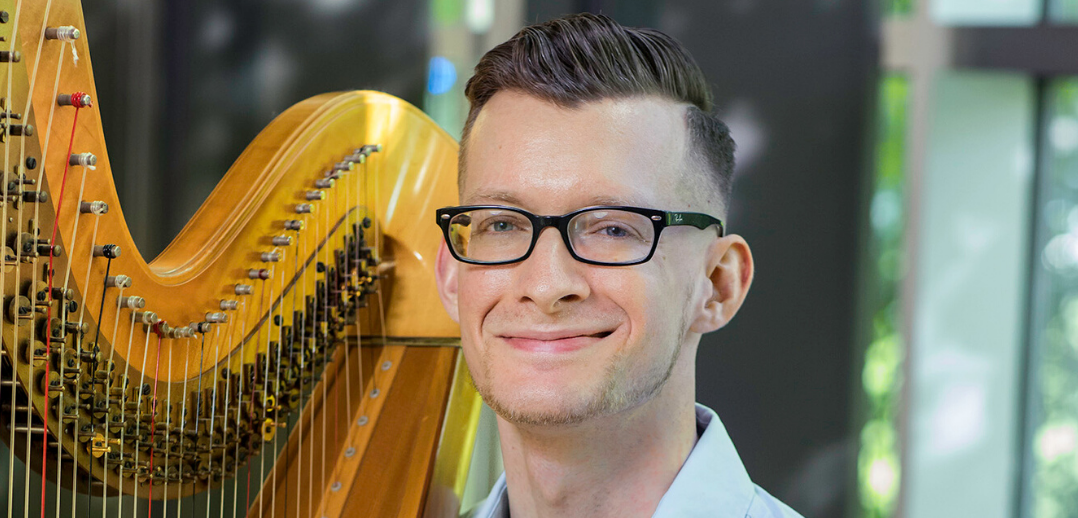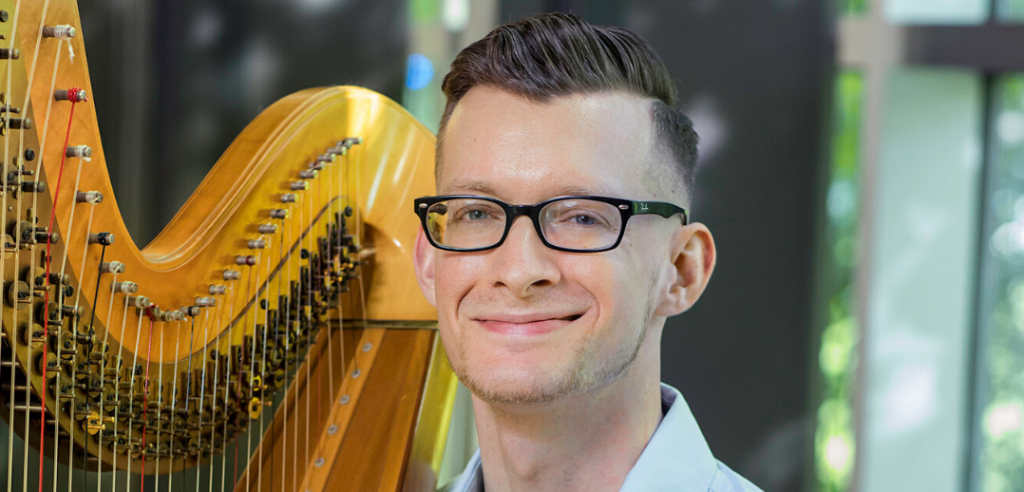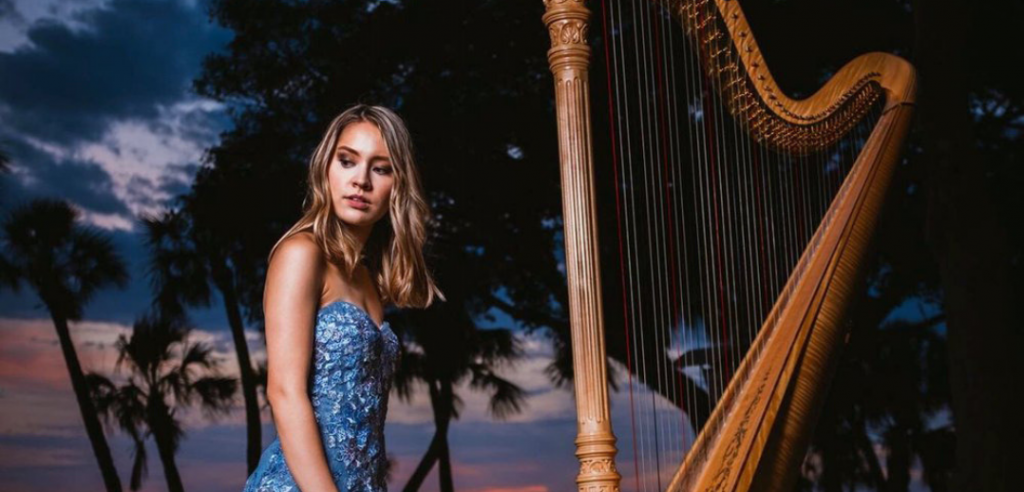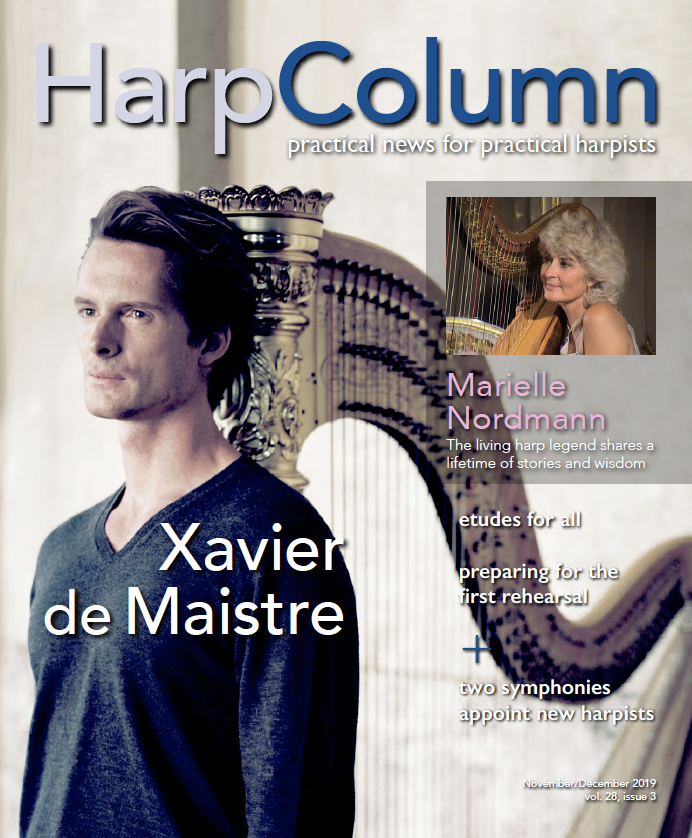Joseph Rebman has been bouncing around the Midwest for the better part of his life, studying composition here and harp there. But now the composer-harpist is putting down some roots in Cincinnati and starting to see his career grow.
Rebman started playing the harp at age 10 with Michelle Gwynne through the prep program at Northern Kentucky University (NKU).
He worked with Gwynne through high school and then went on to the Cleveland Institute of Music to study with Yolanda Kondonassis. After Cleveland, it was off to the University of Oklahoma for a master’s in composition and some harp study with Gaye LeBlanc. Still wanting a little more harp study, but not the academic rigor of a doctorate, Rebman returned to his native Cincinnati to do an artist diploma at University of Cincinnati College-Conservatory of Music with Gillian Benet Sella, which he completed in 2017.
Rebman first caught our attention earlier this year when he premiered a harp concerto he wrote, Hyperion, at the Mostly Modern Festival in Saratoga Springs, N.Y. It’s clear after talking to Rebman, his vibrant young career didn’t happen by accident. He makes it a habit to seek out opportunities.
Tell us what you’ve been up to since graduating.
Though I did some freelancing in Cleveland, my first position was a year with the Amarillo Symphony in Texas as acting principal during my time living in Oklahoma. Sadly, upon my return to Cincinnati, my first teacher Michelle was struggling with cancer and passed a year later. Before she did, she gave my name to NKU as a possible replacement, and they subsequently hired me to take over the harp program, both undergrad and prep. Definitely bittersweet to take over the program that got me started.
Michelle was also harp teacher for Cincinnati’s School for the Creative and Performing Arts (SPCA)—a K-12 arts magnet school within the city of Cincinnati public schools, offering harp ensemble as a daily class. SCPA hired me to take over the program in the fall of 2017. I currently have 19 students divided into four groups who I work with every day during the day. I also teach private lessons for some of these students before and after school. Around the same time I was also voted president of the Cincinnati Chapter of the American Harp Society. I was nervous at first, but this turned out to be pretty fantastic.
Last year I won a position as principal harpist for the Kentucky Symphony orchestra, a small group just across the river from Cincinnati in Newport, Ky. I also perform with the Huntington Symphony in West Virginia and the Queen City Opera in Cincinnati. During the summers I am on the faculty of the Mostly Modern Festival, a new festival focusing on 20th and 21st century music. Lots of little puzzle pieces that create a busy career.
What is the best thing about being a professional musician?
Doing what you love! Every day is focused around the harp, and I wouldn’t have it any other way.
What’s the hardest thing about being a professional musician?
Specifically as a freelancer, it is difficult to be your own boss. I am constantly trying to find the balance between making sure I am productive, while not pushing myself too hard. You have to look out for both the well-being of your career and your personal life.
What did you want to do for a living when you were younger?
For a long time I wanted to be a marine biologist and work at an aquarium. It wasn’t until late in my sophomore year in high school that I actually decided to go to college for music. I had to work really hard, but it all paid off.
What is one thing you have learned since graduating that you wish you had known while you were in college?
It is rare for opportunity to stumble upon you. Some of your highest success will be from creating your own projects. Don’t just wait to be discovered.
What does a typical day look like for you?
Feels strange to call any day typical. I’m at SCPA every day, and I usually teach three to four lessons each day, in some combination of before and after school. Evenings are for practicing, answering emails, or orchestra rehearsals.
What skills are most valuable to have as a professional musician?
Being quick on your feet, flexible to constantly changing schedules, knowing how to make connections with people, and having the creativity to see opportunity everywhere.
How do you prioritize practicing in your working life?
It is really difficult. When people say college is the time to practice for hours and hours every day because you won’t have time later, they were not kidding! I am very defensive of my practice time and prioritize at least a little time every day. I also am sure to have at least one piece I’m working on just because I want to, not only music I need to learn for one of my orchestra jobs.
What is the last new piece you learned?
I’m actually in a fun harp and trombone duo with Louis Setzer called JOLO, which is a mixture of our names and YOLO, because why not! We just recorded our debut album this summer, chock full of new unrecorded music, plus a beautiful Lucile Lawrence arrangement of Ravel’s Pavane. My favorite piece we recorded is The Bounds of Spring by Taylor Roland.
What’s the best thing you’ve done to get more work?
Keep an eye on the local scene and introduce yourself to people. What groups do you see your colleagues playing with? What events are happening around town? Figure out who is in charge and offer your services. I’ve gained multiple gigs this way, some of whom had never used harp because they hadn’t thought of it before!
What’s the next thing you’re planning to do to build your business?
My proudest accomplishment so far was the premiere of my concerto Hyperion this summer at the Mostly Modern Festival. However, I don’t want the premiere to be the first and last performance. My next plan is to reach out to people I think could help me get more performances lined up in the future. •












